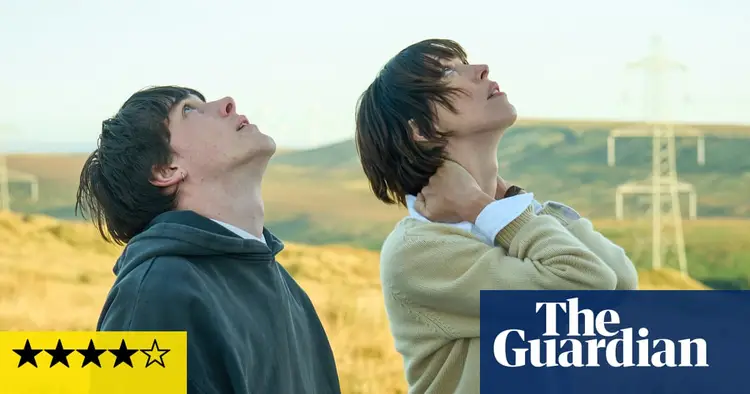The Listeners review – Rebecca Hall’s hauntingly delicate drama will paralyse you with dread

One of the most unsettling questions to consider is what you would do if nobody believed you. Believed you about what? It doesn’t really matter. Imagine experiencing something deeply, whether it’s a feeling, knowledge, or an event, and when you share it with others, they dismiss it completely. How would you cope with that?
At the center of the chilling four-part drama The Listeners, adapted by Jordan Tannahill from his book, lies a haunting question. The setting shifts from the US to the UK, with Rebecca Hall portraying Claire, a busy mother, wife, and beloved literature teacher at a local school. Claire’s hectic life takes a strange turn when she begins to experience a deep, unsettling hum that seems to come from outside her. To demonstrate this phenomenon, she plugs her ears, and the sound vanishes. Her husband, Paul (played by Prasanna Puwanarajah), proposes that it might be tinnitus, but doctors are unable to identify any physical reason for her distress.
Noise-canceling headphones can only offer so much relief. Before long, Claire finds herself unable to get any sleep (Paul awkwardly retreats to the guest room); fatigue begins to take a toll on her, causing her to lash out at her students. She spends her nights online, looking for answers. When one of her students, Kyle (played by newcomer Ollie West, who is making a notable impression alongside one of Hall’s most captivating performances), shares that he’s experiencing the same issue, the situation becomes filled with risks and opportunities for manipulation. Kyle's mother "lost it" when he confided in her, so now he pretends the problem has disappeared.
The couple explores locations for wind turbines and other potential origins of the mysterious hum. Along the way, they connect with a support group of others who also hear the sound. This group, guided by a charismatic husband-and-wife duo, is discovering ways to coexist with the hum. They consider interpreting it as a message, and possibly even embracing it, believing that doing so will bring peace and happiness.
The Listeners explores in depth the various needs, motivations, and personalities of individuals who may be unknowingly seeking answers in conspiracy theories, alternative therapies, belief systems, and cults. It closely examines human vulnerabilities and quirks, such as Claire being suspended for meeting a student outside of school hours. The narrative highlights our deep desire to be acknowledged, heard, and understood by those around us. It shows how easily we can feel lost if these needs aren’t met by our typical support systems, and how quickly we may seek out alternative sources of fulfillment.
As Claire and Kyle get further involved with the group, bigger concerns about navigating a world where truth is elusive come to the forefront. How do you determine the importance of the endless stream of information bombarding us at all hours from countless sources, far beyond what any person can handle? How do you prevent this overwhelming flow of information from influencing even someone as logical and intelligent as Claire?
Tannahill's writing, along with Janicza Bravo's direction, intricately weaves a tapestry of uncertainties as it unfolds Claire's narrative. The show keeps you on edge, blurring the lines between the supernatural and scientifically plausible explanations. Untrustworthy narrators may start to influence the story, and it explores the depths of our shared delusions and denial—showing both their protective qualities and the havoc they can ultimately cause. By the last episode, it evokes a gripping sense of existential dread that feels utterly overwhelming.
The main drawback of the story is that while Claire and her struggles receive a lot of attention, the other characters feel a bit one-dimensional. For instance, Claire's husband quickly shows impatience toward her issues, reacting with outright anger instead of demonstrating a mix of confusion, curiosity, concern, or sadness about her growing dependence on the group. Similarly, her close friend Cass (Franc Ashman) reacts in a very straightforward way; she completely turns her back on Claire as soon as she hears about her suspension. When Claire meets her at a café to try to mend their friendship, Cass snaps, “Why would I want to ask a rapist anything?” This moment feels jarring in an otherwise thoughtful and nuanced drama that's crafted with great care and sensitivity.















































